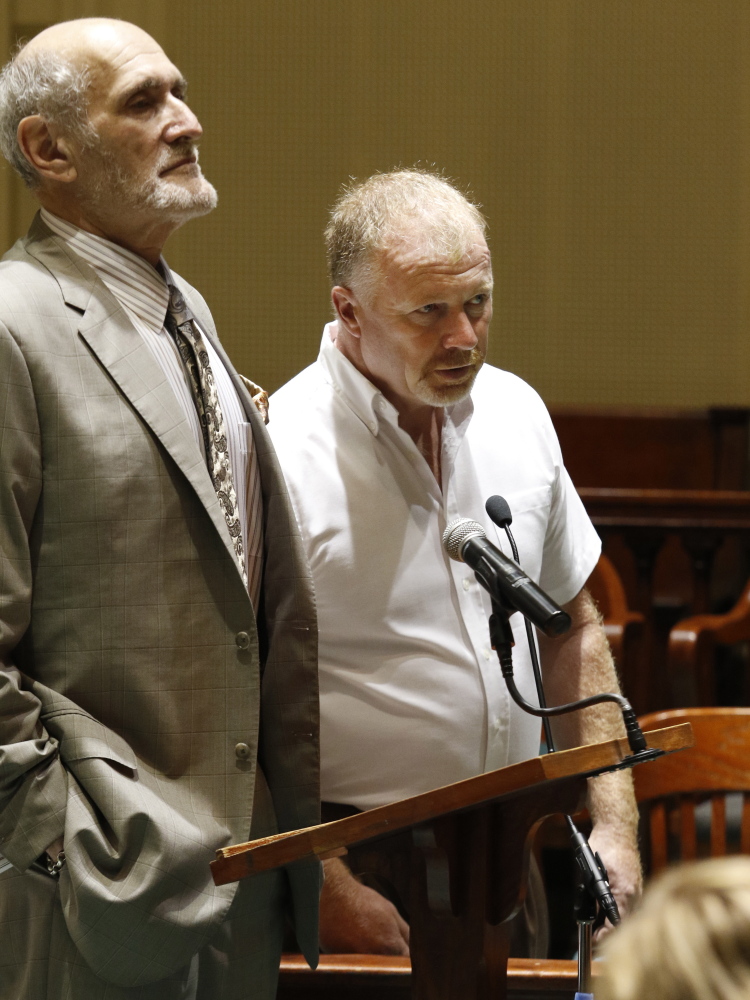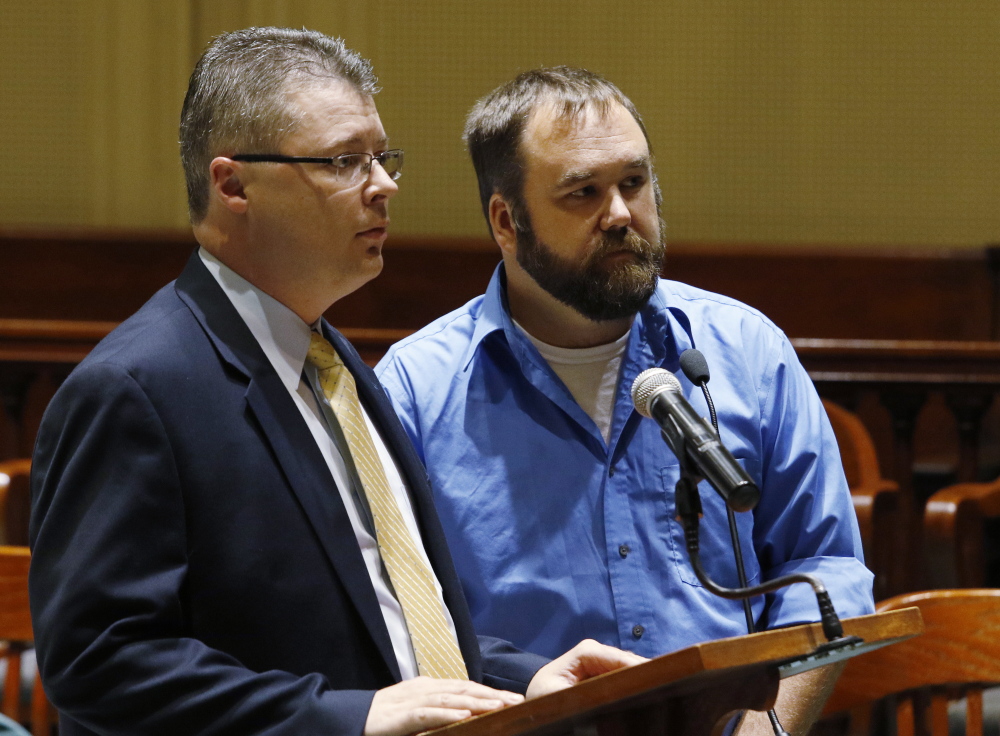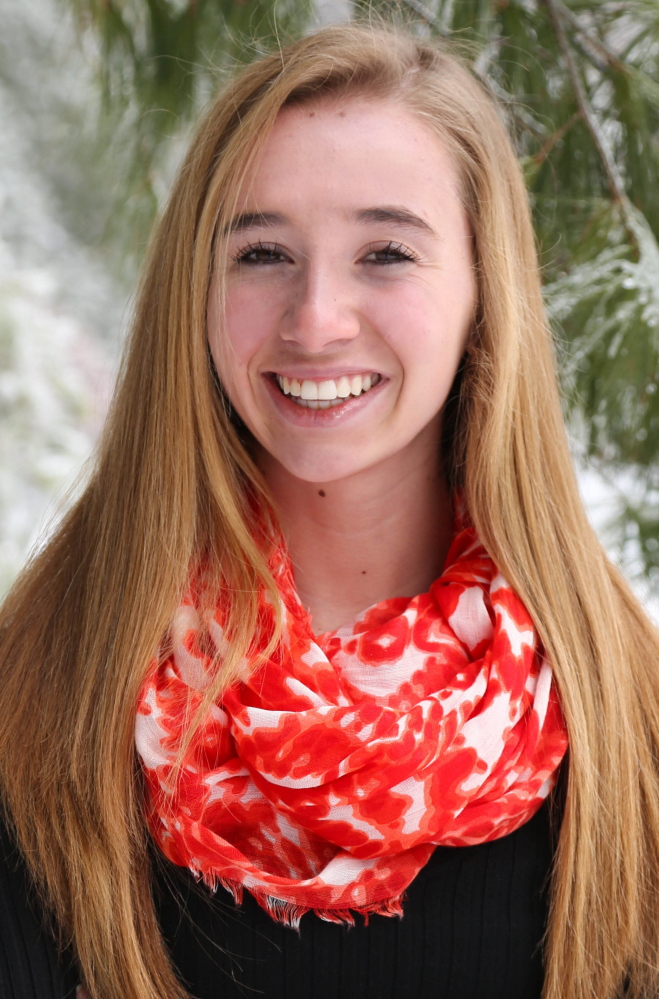AUBURN — Employees of Harvest Hill Farms in Mechanic Falls told investigators that the farm’s owner was aware of brake problems with the Jeep that crashed in October while towing a hayride full of customers, killing an Oakland teenager and injuring 20 other people.
Two employees told state investigators that they warned Peter Bolduc that the vehicle was unsafe. And one said Bolduc himself complained about the brakes on the Jeep a few weeks before the accident.
Cassidy Charette, 17, was killed on Oct. 11 when the Jeep’s brakes failed and the vehicle and trailer rolled down a hill and hit a tree, throwing passengers from the trailer.
The allegations against Bolduc and new details about the crash were in search warrant affidavits released Thursday by Androscoggin County Superior Court. The affidavits reveal a small portion of the evidence collected during the prolonged investigation. They don’t include interviews with Bolduc, who was never charged with any crime related to the incident despite being a focus of the investigation.
His lawyer has said that Bolduc denies any knowledge of the mechanical problems that led to the crash, and that state police administered a polygraph to verify he was telling the truth.
Androscoggin County District Attorney Andrew Robinson said earlier this month that he chose not to seek an indictment against Bolduc because the investigation showed there was a substantial chance it would not lead to a conviction.
Two employees of the farm face misdemeanor charges, and the farm itself faces manslaughter and other felony charges. All three defendants pleaded not guilty Thursday.
The driver of the vehicle that was pulling the hayride, David Brown, 55, of South Paris, and the mechanic who worked on it, Philip Theberge, 38, of Norway, appeared in court to plead not guilty to one count each of reckless conduct.
An attorney entered the plea for the corporate owner of farm, which is charged with manslaughter, aggravated assault, driving to endanger and reckless conduct. Bolduc did not appear in court.
The investigation took months before prosecutors presented their case against Brown, Theberge and the farm to a grand jury.
Affidavits released after the court appearances describe the chaotic scene after the crash.
The Jeep and trailer were riding on a gravel road through the farm and rolled down a 300-foot-long hill. Brown was unable to stop because the brakes failed.
“The trailer struck a large tree, uprooting the tree and causing the trailer to pitch right and then violently to the left, throwing all 22 patrons and one employee from the trailer,” according to a sworn affidavit by Senior Investigator Daniel Young of the state Fire Marshal’s Office.
Young’s affidavit also includes interviews with employees who pointed blame at Bolduc:
“(Christopher) Kimball told me that he is very upset about the accident because he and manager Dan Carroll had told Peter Bolduc that the jeep and other vehicles he was using were inadequate for the (hayride) course, especially the long hill. Kimball told me that three weeks ago, Peter Bolduc complained to him that when the jeep warmed up the brakes went right to the floor. Kimball told me that Peter Bolduc continued to use the jeep and never had the brakes repaired.”
Bolduc has filed for bankruptcy, citing injury claims as a primary liability. The filing does not cover the business that operated the hayride, just the entity that owns the land on which that business and other related enterprises are tenants, according to the law firm representing Bolduc.
Jodi Nofsinger, an attorney with Berman and Simmons, represents Charette’s family, which plans to bring a claim against the farm in connection with her death.
An attorney for the company, Michael Whipple, said outside the courthouse Thursday that Harvest Hill Farms faces a maximum fine of $170,000 if convicted of all criminal charges. “Essentially, the corporation can face fines and restitution orders,” Whipple said.
Whipple said he believes that prosecutors obtained an indictment against the farm as an organization to make a statement to the community, although Bolduc is not being held criminally responsible.
“(Bolduc) is obviously happy he’s not here in person in the court today. He worked extremely hard on behalf of himself and the corporation to prove he didn’t do anything wrong criminally,” Whipple said. “But the tragedy of Cassidy Charette haunts him every day. It’s always with him.”
Brown, the driver, left the courthouse without speaking to the press.
Brown’s attorney, Leonard Sharon, said he believes prosecutors will have a hard time proving that the driver was reckless in the accident.
“I suspect that the evidence will not be able to show that, as a driver, he consciously disregarded a knowing risk. That’s what they would have to prove to prove recklessness,” Sharon said. “He doesn’t remember much about what happened that night, but I suppose what he says about that night is he was driving a Jeep provided to him by the company and the Jeep lost control and got into an accident. That’s the best he recalls.”
Reckless conduct is a Class D misdemeanor, punishable by up to a year in jail and a $2,000 fine. Manslaughter and other Class A felonies are punishable by up to 30 years in prison and $50,000 fines. A person is guilty of reckless conduct if he or she “recklessly creates a substantial risk of serious bodily injury to another person,” according to state law. Manslaughter means recklessly causing the death of someone.
The District Attorney’s Office erred initially and mistakenly announced that Brown had been charged with manslaughter, aggravated assault and driving to endanger. District Attorney Robinson apologized for the mistake on July 9 and attributed the incorrect announcement to a clerical error.
Almost 100 businesses in the state offer hayrides, many of them running multiple vehicles. A bill in this legislative session proposing to regulate hayrides was amended to become a resolve that called on public safety officials to study the issue and report to legislators in February. The resolve was vetoed by Gov. Paul LePage, but the Legislature voted to override the veto.
Send questions/comments to the editors.




